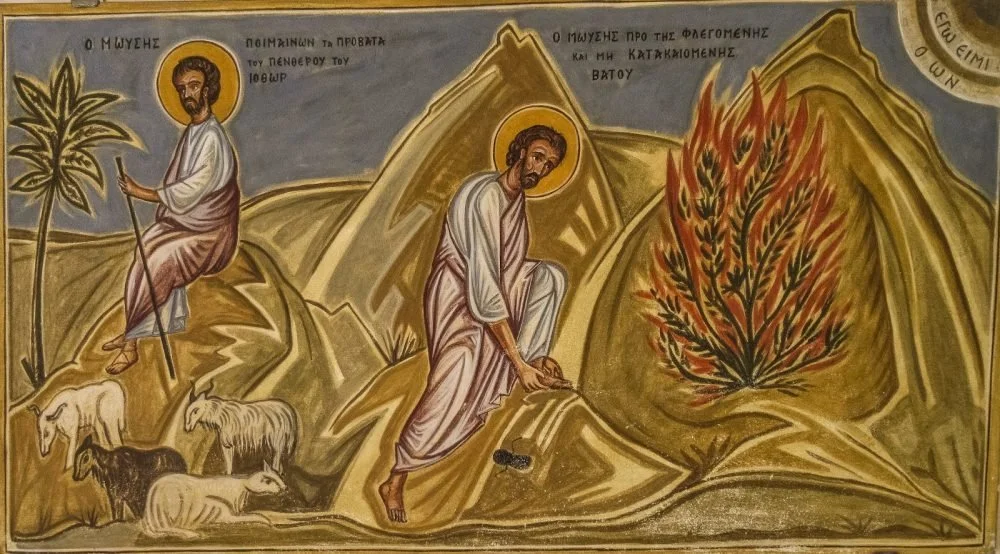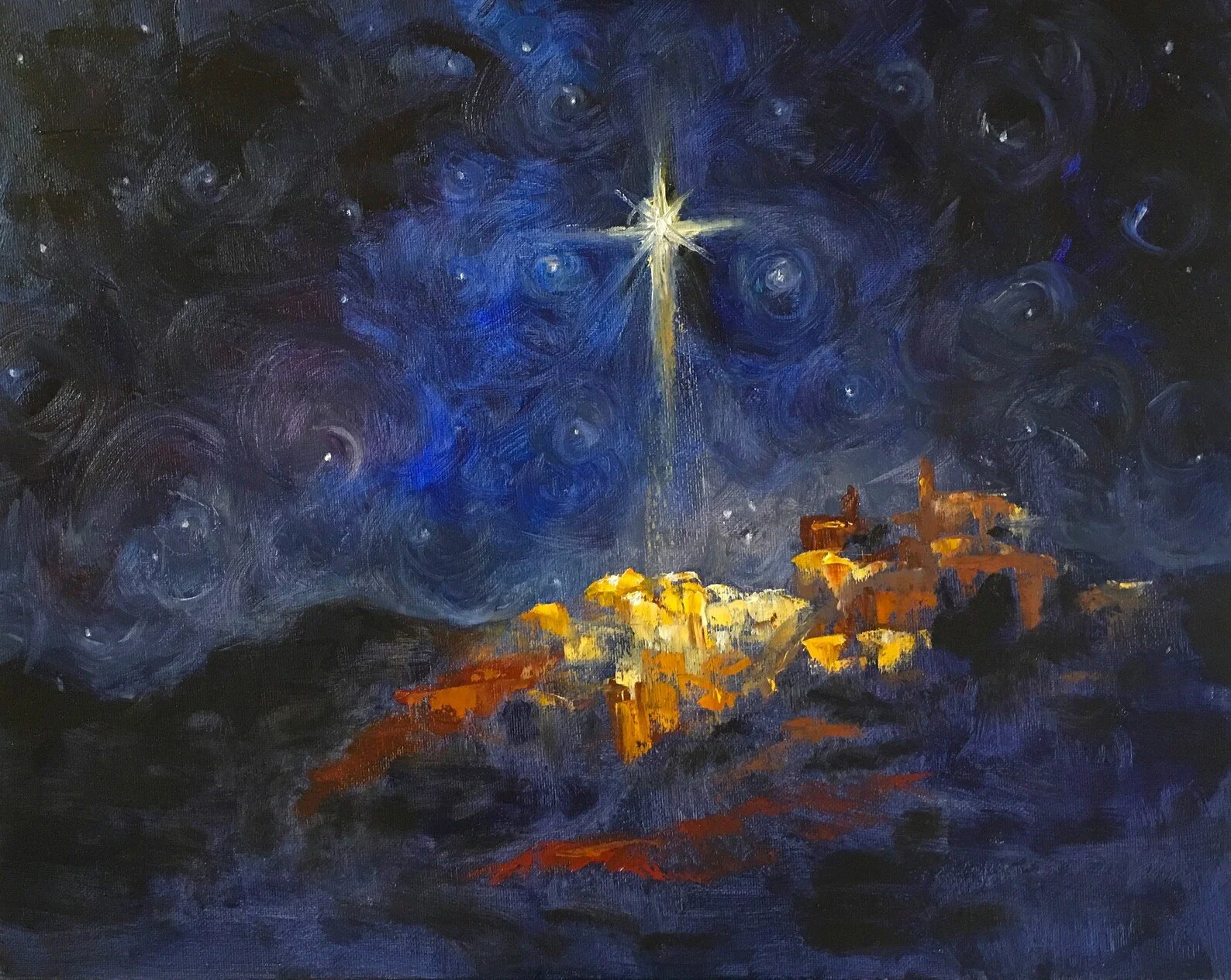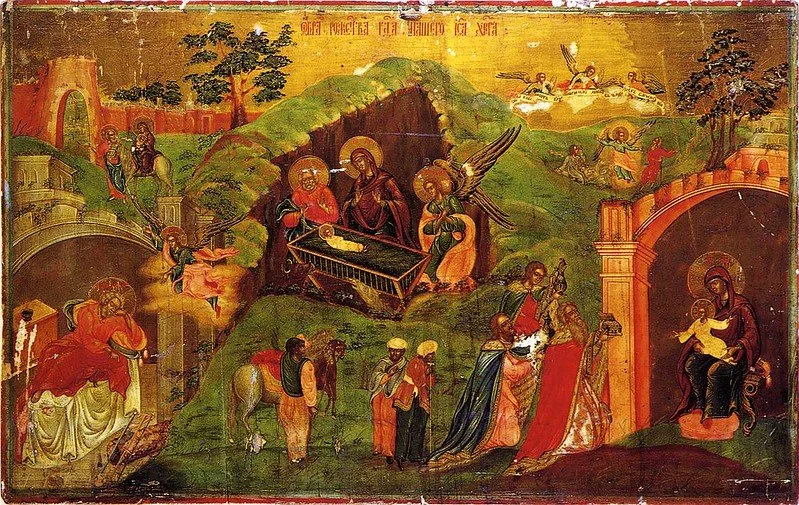"I Am" : An Advent Reflection
One of the most fascinating things to me about the life and ministry of Jesus is the radically different ways in which people respond to him. And sometimes those radically different responses come from the same group of people just moments apart from each other.
Have you ever noticed this?
One moment a group of people will be fawning all over him, scrambling to get as close to Jesus as they can, to watch what he’s doing, to hear what he’s saying, sometimes skipping entire days of work, other times skipping entire days worth of meals just to be near him. Then something happens. And the next moment that same group of people will move to run him out of town or even kill him.
It’s fascinating, isn’t it?
Jesus had this way of splitting or turning a crowd on a dime. Things he said, things he did, things he claimed seemed to force people in one of two directions.
One of the most poignant moments in the life of Jesus where we see both this kind of response and the reason for it is found in John chapter 8.
In this moment Jesus is in the temple. The very place we would expect him to be most understood and most readily embraced.
However, the people are struggling with some of things Jesus is saying. And as he shifts to speak about his identity, things quickly escalate.
“Truly I tell you,” Jesus says, “whoever obeys my word will never see death.” When they point out that their great forefather Abraham and all of the prophets after him had seen death, Jesus not only affirms their accusation that he thinks himself greater than Abraham but also claims that Abraham himself was thrilled to see Jesus’ day come to fruition.
This is enough to throw them into a frenzy. But as they try to laugh off the numerical ridiculousness of the claim, Jesus cuts right to the chase of what they are failing to comprehend.
Jesus says, “Very truly I tell you, before Abraham was born, I Am.”
Now to understand the gravity of this moment you have to understand that every good Jewish man, woman and child in that room new exactly what Jesus was saying in that moment.
They grew up on these stories. They knew the Torah frontwards and backwards. And Jesus is referencing a huge moment in the story of their ancestors.
Their minds would have immediately gone to Exodus 3 when God calls Abraham to confront Pharaoh and lead his people out of bondage to Egypt. Amongst Abraham’s many concerns in that moment was this:
“Suppose I go to the Israelites and say to them, ‘The God of your fathers has sent me to you,’ and they ask me, ‘What is his name?’ Then what shall I tell them?”
God said to Moses, “I am who I am. This is what you are to say to the Israelites: ‘I am has sent me to you.’”
God also said to Moses: “Say to the Israelites, ‘The Lord, the God of your fathers—the God of Abraham, the God of Isaac and the God of Jacob—has sent me to you.’”
So when Jesus says to a bunch of good Jewish folks who know their Torah frontwards and backwards “I Am,” they knew exactly what he was saying in that moment.
Jesus was saying, “I am the Lord. I am Yahweh with skin on. I am the God of Abraham, Isaac and Jacob. I am.”
Now when Jesus makes this claim, there's really only two possible responses to this claim: reject him or worship him. Those are the only two options. Either he is a liar or lunatic who ought to be rejected outright, or he is the living God and worthy to be worshiped.
The response of those in the temple? We are told they picked up stones, that they moved to kill him, and that Jesus hid himself before slipping out of the temple.
Now let’s consider for a moment the gravity of this scene.
Jesus is in the temple. A temple built to worship the great I Am. Jesus stands before them and says, "I am He. Finally you can see my face with your own eyes, hear my voice with your own ears, touch me with your own hands. I have heard your cries and here I Am."
But these people who claim to be the people of God, gathered to worship God, standing in the house of God, reject God in their midst.
He puts on flesh and yet ultimately has to flee the temple that bears his Father's name because there's no place for Him there.
Have things really changed that much?
If Jesus were here in the flesh with us here and now, I often wonder just how welcome he’d be in our churches.
I wonder if we'd really like what He'd have to say.
I wonder if we'd really listen.
I wonder if we'd even tolerate him.
Or whether we'd ultimately run him out as those in the temple did that day.
I think there is something important here for us.
I think this should serve as a sober reminder to us that close-fisted religion is not only empty, it has the capacity to blind us to the very work and presence of God.
In acknowledging Jesus as the great "I Am," we must come to terms with the fact that Jesus is not an idea to be pondered or a knickknack to be admired on our shelf of religious relics and responsibilities.
He is the very face of God.
He will not be pandered to. He cannot be tamed. And he certainly won't play second fiddle to any religion, even one that bears his name.
Our response to his divine claim, to be the great "I Am," boils down to the same two options as those with him in the temple that day: worship him or reject him.
Will we worship him when he doesn't look the way we thought he'd look?
When he doesn't act the way we thought he'd act?
Will we worship him when he doesn't play by our rules?
Will we worship him when he offends our religious sensibilities?
Will we worship him when he doesn't align with our political party?
Will we worship him when he asks us to sacrificially love the people we've been taught to hate?
Will we worship him when his grace seems to go too far?
Will we worship him no matter what he asks us to give up, rethink, unlearn, surrender or lay down?
While Jesus may have left the temple that day, one of the incredible truths of the incarnation is that God cannot and will not be contained by places of worship made by human hands. His presence is not confined to temples or churches.
For now God is present in the streets.
He is present around our dinner tables and on our back porches.
He is present wherever two or more of his people gather together in his name.
And while there will always be those who choose to reject him - and we love them, pray for them, serve them and bless them - for those of us who know Jesus to be the great "I Am," we can't help but worship him.


